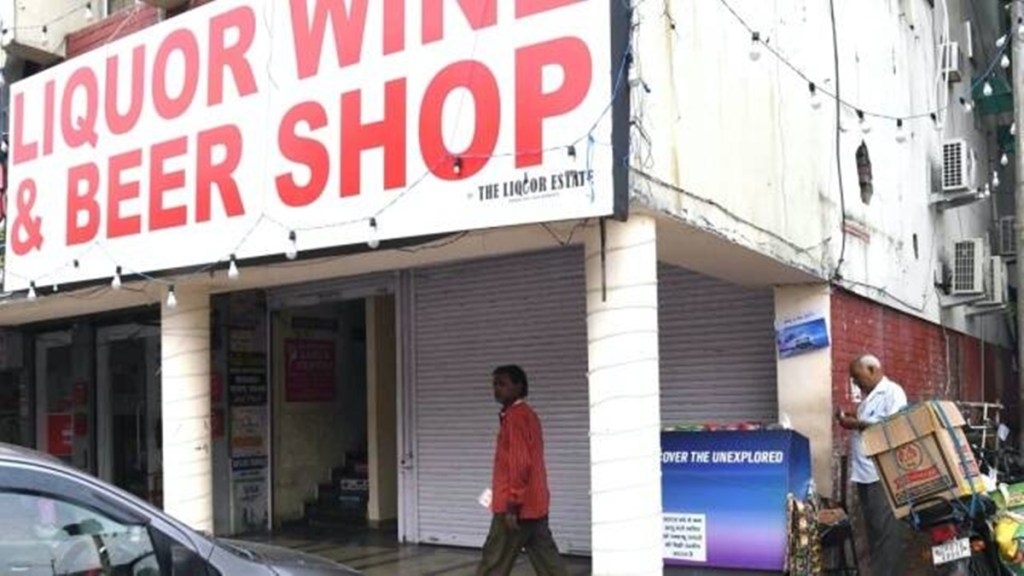Liquor sales in the Indian capital experienced a significant decline over the past year, plummeting from an impressive growth rate of 263 per cent in the first quarter of 2022 to a negative growth rate of -14 per cent in the final quarter of the financial year, a report released by the Confederation of Indian Alcoholic Beverage Companies (CIABC) has said.
The report highlights the stark contrast between the initial quarter’s exponential growth and the subsequent decline in sales. In the second quarter of last year (July to September), liquor sales rose by a mere 28 per cent, attributed to a controversial liquor policy that was in effect during the first quarter and subsequently abolished.
Also Read: Delhi liquor policy: Manish Sisodia named as accused for first time in ED chargesheet
The CIABC has attributed the positive annual growth rate of 36 per cent to the liquor policy implemented by the Delhi govenrment during the initial quarter. This policy involved offering enticing discounts, such as “one plus one” and “buy one, get two free,” to stimulate sales.
According to The Indian Express, a closer examination of the data reveals that “much of this growth is attributed to the first quarter of 2022-23 when various trade schemes and promotions were run to liquidate the stock in view of the impending changes in the excise policy. Thereafter, sales growth has been trending down, reaching negative range, said the CIABC.
Also Read: Delhi excise policy: Over 1.68 lakh illicit foreign liquor seized in Delhi in past eight months
The liquor industry faced additional challenges when the Delhi Excise Policy-2021 was scrapped in July 2022 amid allegations of corruption in its formulation and implementation. As an interim measure, the old excise regime was reinstated in September 2022. However, due to ongoing preparations for a new policy, the old regime has been extended, resulting in continued uncertainty within the industry.
Vinod Giri, the president of CIABC, voiced concerns over the misleading nature of the annual growth rate figures. Giri emphasized, “Annual growth is misleading as it’s driven by the first quarter when retailers were running wild schemes to clear stocks before policy change.”
In response to the report, a senior official from the Delhi Excise department commented on the sales situation, stating, “Sales are fine, and the revenue growth is also good in Delhi. We will have to go through our data before we make further comment”, according to The Indian Express.
What was the Delhi Liquor Policy?
The Delhi Liquor policy was introduced by the AAP in 2021, with a significant departure from the norms in most states. Instead of the government being involved in the sale of liquor, the policy allowed only private shops to handle the distribution.
The new policy regime permitted home delivery of liquor, and shops were allowed to remain open until 3 am. Licensees were also given the freedom to offer unlimited discounts. These schemes led to the government reporting a substantial 27 percent increase in revwenues, amounting to approximately Rs 8,900 crore.
However, In July last year, the Delhi government rolled back the Excise Policy 2021-2022 amid a probe initiated by the Economic Offences Wing (EOW) of the Delhi Police over alleged financial anomalies resulting from the new liquor policy. The action came after the Delhi Lieutenant Governor recommended a CBI probe into the controversial policy regime.
AAP leader and former Deputy CM Manish Sisodia, who also handled the excise department then, was accused of bending rules and providing undue advantages to liquor vend licensees. Sisodia was eventually questioned and arrested in February this year and had to later resign from the Arvind Kejriwal-led cabinet.


